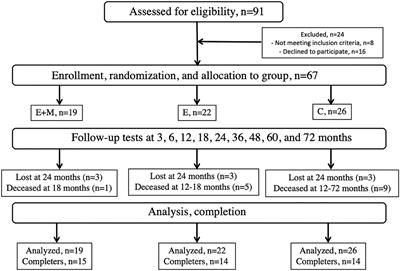EDITORIAL
Published on 08 Apr 2022
Editorial: Automations in Long-Term Neurorehabilitation
doi 10.3389/fneur.2022.864953
- 1,001 views
- 2 citations
6,844
Total downloads
26k
Total views and downloads
EDITORIAL
Published on 08 Apr 2022
ORIGINAL RESEARCH
Published on 06 Dec 2021

ORIGINAL RESEARCH
Published on 19 Nov 2021

ORIGINAL RESEARCH
Published on 13 Oct 2021

CASE REPORT
Published on 14 Sep 2021

ORIGINAL RESEARCH
Published on 08 Sep 2021

ORIGINAL RESEARCH
Published on 19 Aug 2021

